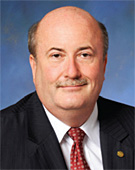
About once a year I find a need to use a famous quote. This time the urge came to me as I read a detailed analysis of the human factors surrounding Turkish Airlines Flight 1951 that, last year in March, crashed short of the runway at Amsterdam Schiphol.
In 1962, U.S. President John F. Kennedy welcomed a large group of Nobel laureates to a dinner at the White House by saying, “This is the most extraordinary collection of talent, of human knowledge, that has ever been gathered together at the White House, with the possible exception of when Thomas Jefferson dined alone.”
In the 18th century it was possible for a remarkable individual like Thomas Jefferson to have some mastery over most areas of human knowledge. One hundred and sixty years later, even a room full of geniuses could not make a similar claim. I have to wonder if the same thing has happened to our own industry while we were busy cutting costs.
I would never claim to have the intellect of Thomas Jefferson, but when I was a young man studying for my Boeing 727 flight engineer exam, I felt like I had a pretty comprehensive knowledge of how those aircraft systems operated. I am not sure that pilots flying the latest generation of sophisticated aircraft feel the same way.
Today, there is so much interconnected technology, so many possible modes of operation; it just doesn’t seem realistic to suggest that one person can know all that is going on. Yet, a misunderstanding of how systems interact can be fatal. In the case of TK 1951, the pilots made a reasonable assumption about how the autothrottle system would respond with one radar altimeter out. They guessed wrong. The right answer was never in their training, and wasn’t even in a manual they could have read on their day off.
It is not possible for pilots to know everything about their advanced equipment, so instead they watch the systems do their thing, day in and day out, and come up with mental models about how they think the systems work. That solution works pretty well until the stick shaker activates early and dumps the aircraft in your lap, or the throttles retard themselves while you are trying to recover from a stall, or an engine goes into climb thrust while you are trying to stop on a wet runway with one reverser locked out.
During the last several decades, complexity has increased, and the pressure on the training system has increased. Cost pressures force training to be done in the absolute minimum amount of time. New training requirements are layered on top of one another and compete for what little training time is available. That doesn’t leave much time to develop understanding of complicated systems.
We need to consider revising the approach. Traditional training focuses on observable tasks and observable outcomes. It is an approach that has its roots in the time-and-motion studies of the late 1800s. This may not be the way to prepare somebody to deal with a one-in-a-million event in an automated system. Maybe it is time to talk about things like education, understanding and insight, and change our perspective. The problems are different today. It is time to adapt.